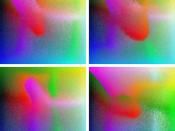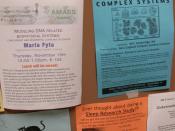Introduction
Traditionally it has been thought that "surprises can and should be avoided with more knowledge, better planning, and / or better systems design". While some surprises can be avoided as a result of the above mentioned measures, the authors argue that surprise is inherent in complex systems and thus cannot be avoided entirely. Furthermore, since surprises are a natural part of complex adaptive systems, they should be embraced as possible avenues of opportunity for creativity, learning and growth.
Since we have yet to develop a foundation for this class on which to base this discussion, I will attempt to relate the topics addressed in the reading to material covered in other classes and personal life experiences.
Surprises in the Traditional View
The article begins by defining the traditional view of surprise as a threat that should be avoided. In a traditional organization, managers "feel a strong need to dominate, control, arrange, program, and organize disarray until it is tamed".
This vantage point can lead to a rigid system that is unable to recognize and respond to the positive opportunities presented in the form of surprises. Organizations with a traditional view of surprise may present the following characteristics:
Focus on returning to the "previous state" rather than expanding beyond defined boundaries
Focus on each individual doing his/her job so that mistakes will be avoided
We have all been exposed to this kind of organizational tactic...just do your job and everything will be fine. However, this ideal does not embolden us when an unknown situation arises, and in fact may limit our ability to respond to a new situation.
Strong need to predict / control the future through past and present data collection and analysis
If the future is not what we expected, our data / analysis must have been wrong.


